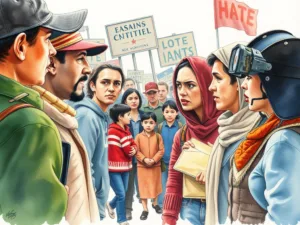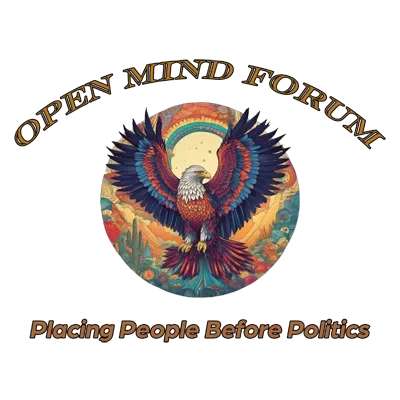Exploring Žižek’s Concepts of Reality and Ideology
Introduction to The REAL and the Big Other
Slavoj Žižek’s unique philosophical approach confronts the concepts of the REAL and the Big Other as frameworks for understanding human experience and ideological control. These ideas, drawn largely from Lacanian psychoanalysis and Hegelian dialectics, represent core elements of Žižek’s work, offering profound insights into the nature of reality, social dynamics, and individual agency. By examining these concepts and their philosophical foundations, we can unpack how Žižek’s ideas illuminate the often-invisible structures that govern behavior, perception, and power in society. Critically engaging with both his influences and his critics, we can better understand how these concepts apply pragmatically to real-world situations.
The REAL as a Disruptive Force
In Žižekian philosophy, the REAL denotes the aspect of experience that resists symbolic representation and ideological control. Drawing on Lacanian psychoanalysis, Žižek posits the REAL as that which cannot be said or directly accessed through language. Unlike reality as commonly understood, the REAL disrupts perceptions by appearing as a traumatic, uncontainable element that defies ideological frameworks. Žižek argues that we encounter the REAL at moments when our belief structures break down, revealing the limits of our constructed reality. For example, economic crises, natural disasters, or political upheavals often manifest the REAL by undermining ideological fantasies of stability and control.
Hegelian dialectics further influence Žižek’s view of the REAL, as Žižek interprets these breakdowns as necessary steps toward self-realization. The dialectical process, for Žižek, does not simply reflect a synthesis of opposites but rather a confrontation with the contradictions within reality itself. When ideological narratives fail, individuals face the unsettling truths of the REAL, forcing a reconsideration of personal beliefs and social norms. Žižek’s critics, such as Todd McGowan, argue that the concept is overly pessimistic, suggesting that the REAL may lead to nihilism. However, Žižek would counter that such confrontation is essential for authentic personal and social transformation.
The Big Other as Symbolic Order and Ideological Authority
Žižek defines the Big Other as the symbolic framework or social gaze that gives coherence and meaning to human actions. This structure acts as an abstract guarantor of societal norms and values, existing as an imagined authoritative presence rather than a tangible reality. He often describes the Big Other as the unseen but universally accepted force that sustains social conventions, like laws or norms. Drawing again from Lacanian psychoanalysis, the Big Other embodies an internalized ideology that dictates acceptable behavior within society, operating beyond individual awareness and shaping collective identity.
Žižek provides various examples of the Big Other in contemporary life, from the persistence of common sense beliefs to institutional authority. For instance, social norms around consumer behavior or media representation, while not legally binding, exert powerful influence by maintaining a shared, albeit often unspoken, understanding of acceptable values. The power of the Big Other, Žižek suggests, lies in its apparent invisibility; people accept these values as natural rather than as ideological constructions. Žižek’s critics argue that this interpretation underestimates individual agency, as thinkers like Simon Critchley assert that individuals retain the ability to resist and reshape ideology. However, Žižek would argue that recognizing one’s ideological limitations is a necessary step in achieving meaningful autonomy.
The REAL and the Big Other: Navigating Ideology and Truth
Žižek’s distinction between the REAL and the Big Other highlights a central conflict in his philosophy: the tension between ideological illusion and unavoidable truth. The REAL exposes the fractures in ideological structures upheld by the Big Other, revealing the contingent nature of societal norms. Žižek sees this tension as emblematic of contemporary crises, such as the environmental emergency or economic inequality. When systems fail to uphold the truths promised by the Big Other, society confronts the REAL, experiencing the disintegration of ideological comfort.
A crucial example of this interplay appears in Žižek’s analysis of capitalism. Žižek views capitalism as a powerful Big Other that presents consumption and wealth accumulation as symbols of progress and personal success. However, economic recessions and environmental degradation reveal the REAL of capitalism: the inherent contradiction between endless growth and finite resources. This conflict illustrates how the Big Other’s promises can unravel, leaving individuals to confront harsh realities that ideological structures can no longer obscure. Critics like Noam Chomsky noted that Žižek’s portrayal of capitalism lacks pragmatic solutions, focusing instead on critique without concrete alternatives.
However, Žižek might reply that acknowledging the REAL’s rupture of capitalist illusions is itself an essential step toward meaningful change. I align with Žižek arguing that sometimes the act of exposure is enough to spark solutions by others. Solutions are only able to arrive when the conditions demand them. Žižek is a philosopher who addresses problems as the first step to meaningful change. How does one sculpt solutions when the problem is unknown.
Influence of Lacan and Hegel on Žižek’s Thought: The REAL and the Big Other
Lacan and Hegel profoundly shape Žižek’s approach to both the REAL and the Big Other. Lacan’s psychoanalytic model of the Symbolic, Imaginary, and REAL provides Žižek with a framework for exploring unconscious drives and the limitations of language. Žižek’s Big Other largely derives from Lacan’s Symbolic order, where societal rules and

values reside. Through Hegel, Žižek finds a way to integrate contradiction as a force for growth and self-knowledge. Hegelian dialectics underpin Žižek’s idea that confronting contradictions leads to genuine transformation, a theme that reappears in his critique of ideology.
Yet, Žižek diverges from Lacan in significant ways, particularly in his emphasis on political implications. Lacan often remains within the realm of psychoanalysis as expected. Žižek, expands bringing the concepts of the REAL and Big Other into the social sphere. He uses them as tools for analyzing power and ideology. Critics like Alain Badiou challenge Žižek’s extension of Lacanian ideas to politics, arguing that such applications risk oversimplification. Nonetheless, Žižek asserts that these concepts provide invaluable insights into modern ideological dynamics. Thus helping individuals discern the unseen forces that shape collective beliefs.
Pragmatic Implications of Žižek’s Concepts – The REAL and the Big Other
Understanding Žižek’s concepts of the REAL and Big Other offers pragmatic insights into confronting ideological influences and acknowledging uncomfortable truths. By recognizing the limitations of societal norms (the Big Other) and embracing moments of ideological failure (the REAL), individuals gain a path toward more authentic engagement with reality. In practical terms, this could mean questioning media narratives, challenging capitalist ideals of success, or resisting social pressures that mask uncomfortable truths.
Moreover, Žižek’s ideas encourage self-reflection on personal biases and motivations, fostering awareness of the unconscious influences that guide behavior. This awareness, while unsettling, serves as a foundation for personal and societal change, urging individuals to confront uncomfortable realities and envision alternative ways of being.
Conclusion – The REAL and the Big Other
Slavoj Žižek’s exploration of the REAL and the Big Other sheds light on the intricate relationship between ideology, reality, and human experience. Through Lacanian psychoanalysis and Hegelian dialectics, Žižek reveals how ideological structures mask uncomfortable truths. While moments of rupture bring us face-to-face with the REAL. Some critics argue that Žižek’s theories lack concrete solutions. He would likely respond that understanding these concepts is a critical first step toward transformation. In revealing the ideological boundaries that constrain thought and behavior, Žižek provides a compelling framework for resisting the invisible forces that shape society.
Sources Cited
– Critchley, S. (1999). Ethics-Politics-Subjectivity: Essays on Derrida, Levinas and Contemporary French Thought. Verso.
– Lacan, J. (2007). The Seminar of Jacques Lacan, Book XI: The Four Fundamental Concepts of Psychoanalysis. Norton.
– McGowan, T. (2007). The Real Gaze: Film Theory After Lacan. State University of New York Press.
– Žižek, S. (1989). The Sublime Object of Ideology. Verso.
– Žižek, S. (2006). How to Read Lacan. W.W. Norton & Company.
Suggestions for Further Reading
– Badiou, A. (2005). Being and Event. Explores concepts of truth and subjectivity in relation to Žižek’s framework.
– Chomsky, N. (1999). Profit Over People: Neoliberalism and Global Order. Offers a pragmatic critique of the economic structures Žižek challenges.
– Freud, S. (1930). Civilization and Its Discontents. Foundational psychoanalytic text that influenced both Lacan and Žižek’s views on desire and repression.
– Hegel, G. W. F. (1807). Phenomenology of Spirit. Essential for understanding Žižek’s dialectical philosophy.
– Jameson, F. (1991). Postmodernism, or, The Cultural Logic of Late Capitalism. Provides context for Žižek’s critique of consumer culture.
– Lacan, J. (2006). Écrits: A Selection. Key insights into the Symbolic and REAL, foundational to Žižek’s thought.
Disclaimer: The images and videos in this post are AI-generated creations, intended purely for illustrative and conceptual purposes. They are not real-life representations and should not be interpreted as such. Their sole purpose is to offer a visual means of exploring the topics discussed in this post.




